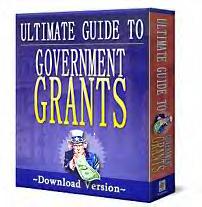George A. Parker
There are lots of ways to get additional capital to expand a home-based business. But before you look outside for financing, leaving the decision about your company's progress and merits to someone else, consider these six ways under your nose to finance your home-based business:
Personal Savings
Savings are easy to tap and involve no paperwork.
The negatives: if you use the money in your business, it eats into your safety reserve and is no longer there for emergencies. It diverts funds from a very low risk investment to a high one.
Whole-Life Insurance
Whole life policies accumulate tax-deferred cash value that you can tap for your business. But the only way you can tap this cash without paying taxes is to borrow against your policy. As long as you keep your policy intact and pay premiums when due, loans remain tax-free.
The negatives: you will be converting a low risk investment into a high one; if you decide to terminate your policy or if you default on repaying your loan, taxes will be due on all cash value accumulated under the policy; if you die before your loan is repaid, any distributions to your beneficiaries will be reduced by the amount of your outstanding loan.
A Loan from Your 401-K Plan
You can borrow up to $ 50,000 of the money you have saved under many 401-K plans. There are no credit checks. Interest is usually a percentage point or two above the prime rate and the interest that you pay back to the plan will be tax-deferred to the plan. Most loans are repayable out of salary deductions over five years.
The negatives: you will have less money invested toward retirement; the dollars used to repay the loan will be after-tax dollars withheld from your paycheck; if you fail to repay the loan, the IRS considers your failure a premature distribution -- you will be charged taxes on the borrowed amount plus you may be assessed a 10% early-withdrawal penalty.
A Home-Equity Loan
These loans do require that you apply and be reasonably credit worthy. You generally can borrow up to 80% or 90% of the equity value of your home. Interest on these loans is generally tax-deductible.
The negatives: you will reduce the equity value of your home by the loan amount; you will be diverting funds from a relatively safe investment to a high risk one; if you default, you put your house at risk of foreclosure. Think very carefully before using this form of financing.
Personal Credit Lines and Credit Cards
They are convenient, versatile forms of financing. You can borrow and re-borrow up to the line limit as needed.
The negatives: you will pay relatively high interest rates-- rates range from 12% to over 18%; the minimum monthly payment on many of these arrangements will repay the outstanding balance within 42 months; it is easy to dig yourself deep into debt using credit lines and credit card debt; high outstanding balances against your line can negatively impact your personal credit rating.
A Margin Loan
You can use margin loans for purposes other than buying additional securities.
Any margin loan will be secured by your equity shares. Rates are often below prime, applying is relatively easy, and these loans have very flexible repayment terms.
Loans are initially limited to 50% of the purchase price of your equity securities. Loan repayments are triggered when the value of your stock falls below the margin limit.
The negatives: Because borrowings are predicated on volatile stock values, a margin loan can be a risky proposition; if you default in repaying, the brokerage firm can sell your securities to satisfy the loan; an untimely sell-off can have a devastating effect on your portfolio and negative tax consequences.
The only safe way to consider a margin loan to finance your home-based business is to limit advances to a relative low ratio of your stock portfolio value say, 25% or less.
Most of these financing methods are under your control and don't require business plans or company financials to qualify. Although each of these methods has risks and disadvantages, so do most external methods of financing. Before proceeding with one of these financing methods, carefully consider the potential benefits, risks and consequences. Whatever you decide, it helps to know the options right under your nose.
| About The Author
George Parker is a Director and Executive Vice President of Leasing Technologies International, Inc. ("LTI"). He is responsible for overseeing the company's marketing and financing efforts. One of the co-founders of LTI, Mr. Parker has been involved in secured lending and equipment financing for over twenty years. Mr. Parker is an industry leader, frequent panelist and author of several articles pertaining to equipment financing. Headquartered in Wilton, CT, LTI is a leasing firm specializing nationally in direct equipment financing and vendor leasing programs for emerging growth and later-stage, venture capital backed companies. More information about LTI is available at http://www.ltileasing.com. gpmail129-groups@yahoo.com |





